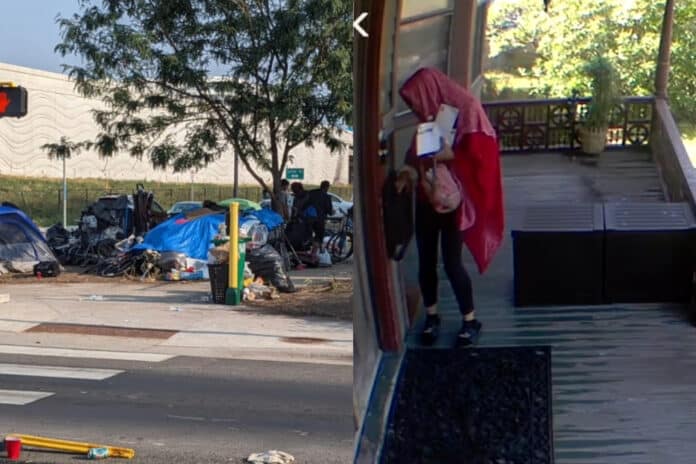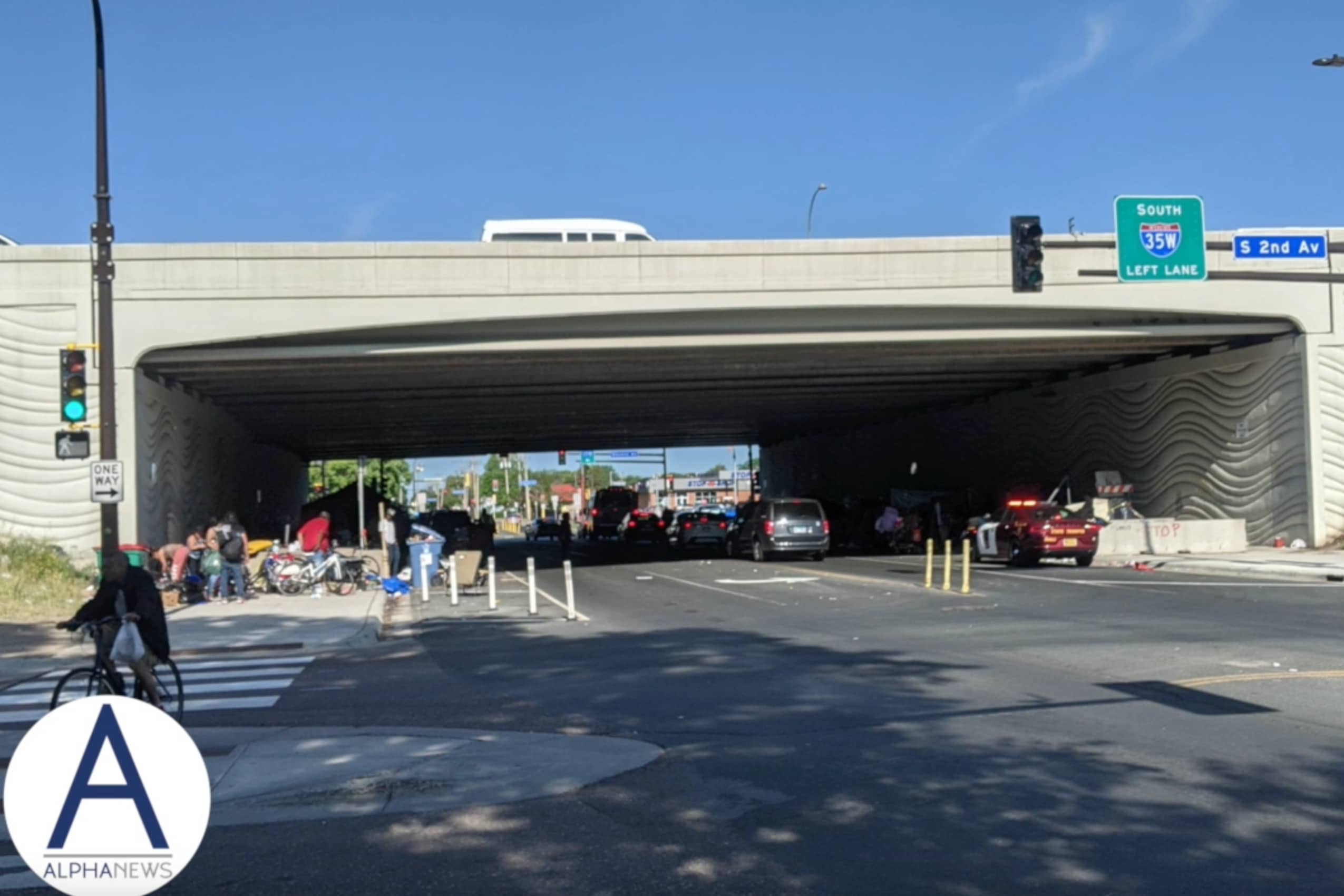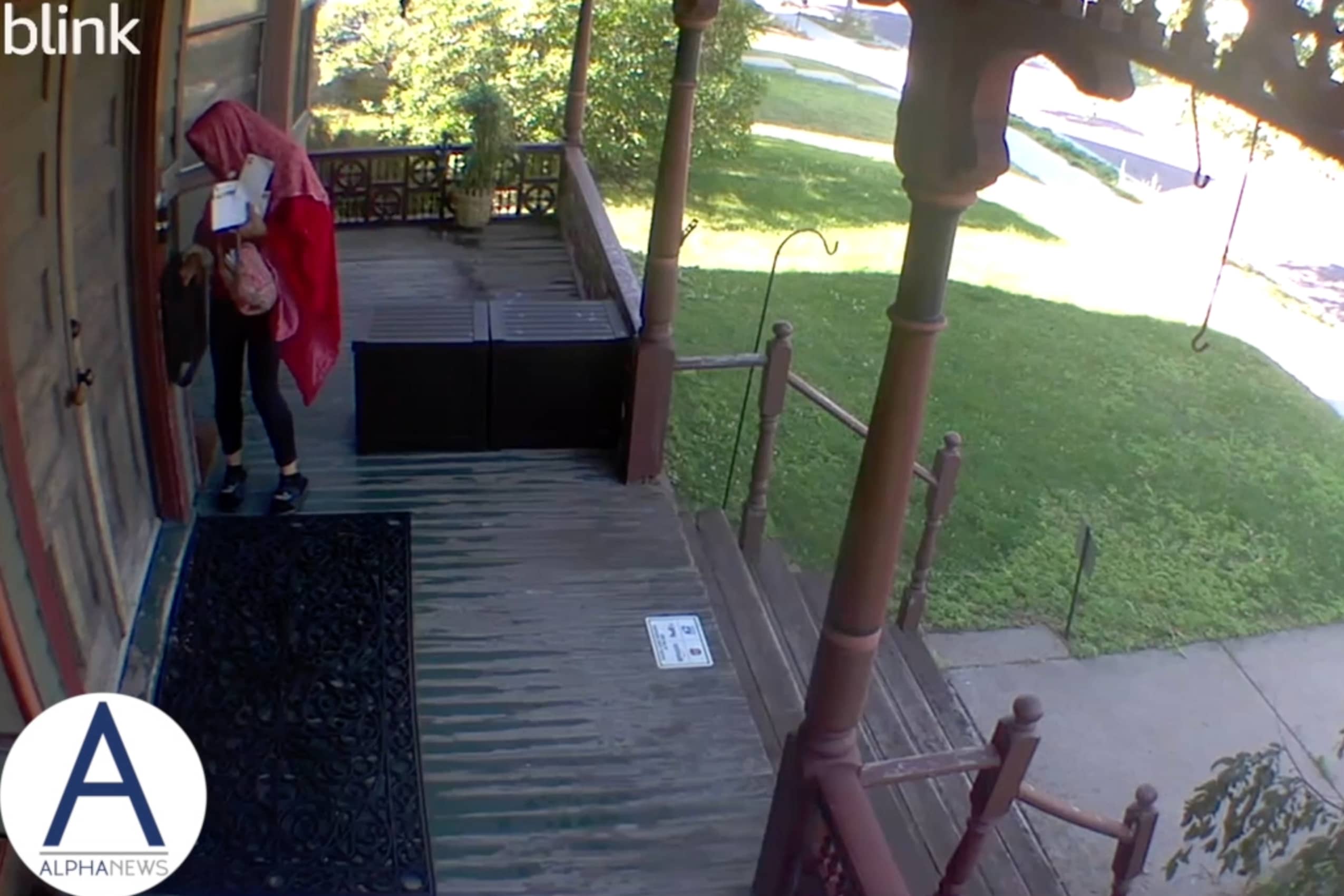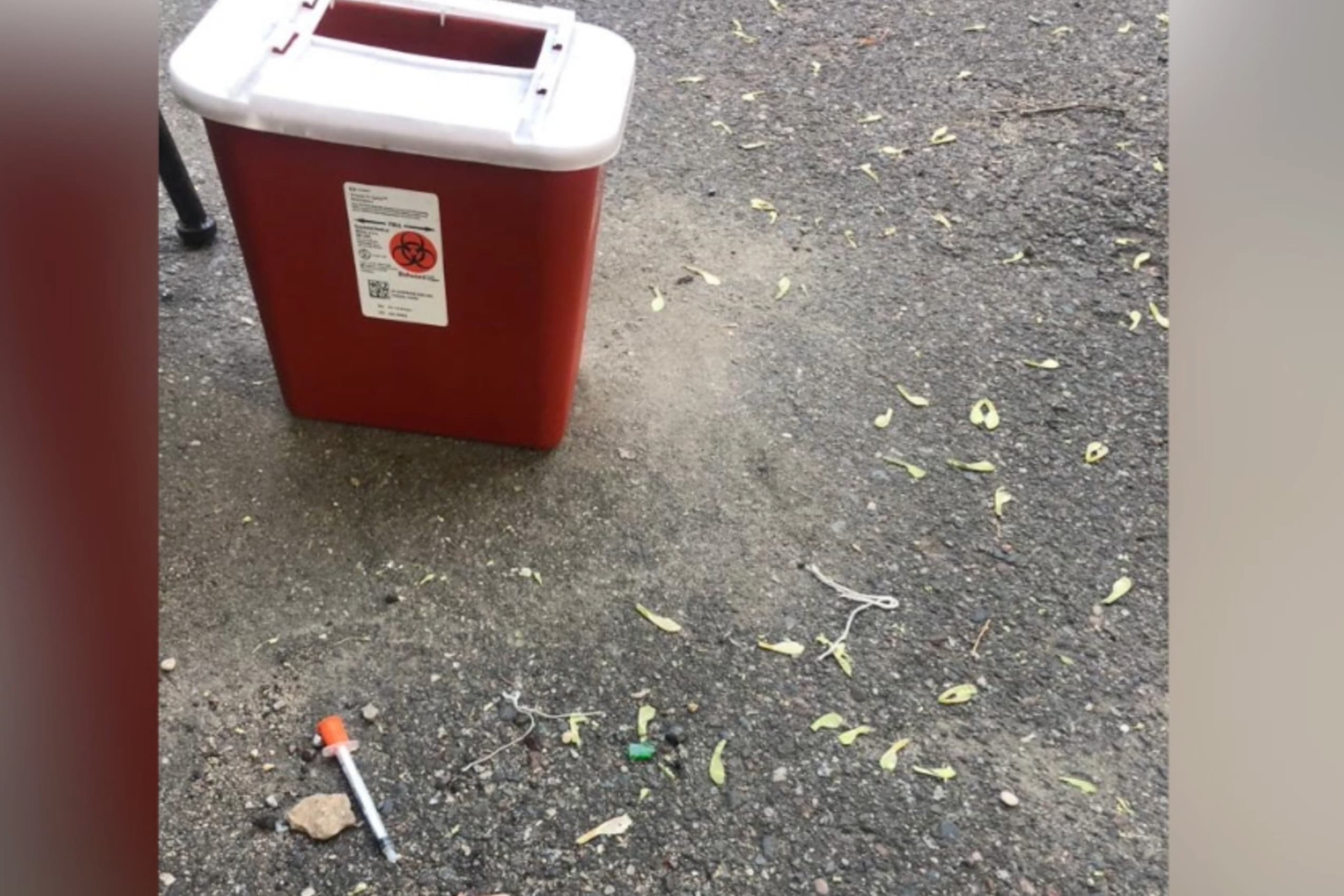
Some Minneapolis residents say city leaders have allowed a nearby homeless encampment to destroy their neighborhood, and they have the pictures and videos to prove it.
David Marquardt opened up about their months-long battle with Minneapolis City Hall on the latest episode of Liz Colin Reports.
“I live in South Minneapolis, the 3100 block of 2nd Avenue, and the encampment is a block away, underneath the 35W bridge. It’s been going on for about 18 months. It took six months for MNDOT to do anything at all, and that was to clear it out, clean up the garbage, and they brought some jersey barriers, thinking that would help keep them from coming back, because there were tents and everything, and the jersey barriers were not close enough together, and so they put tents in between them. And they came back months later and did it again,” Marquardt said.

“I use the word homeless because they are, but they’re homeless because they are addicted to various substances. Obviously, for some it’s meth, some of it’s fentanyl. I think fentanyl is probably the biggest culprit under there. We find needles every day in our yards,” he added.
He also said the location is attractive for addicts because of the freeway ramps and the ability to panhandle.
“There’s also that industry of a bike chop shop. They steal bikes from all over the neighborhood and we see them disassembling them and taking the parts that are worth something, and the rest of them lay there until somebody comes and cleans them up,” Marquardt said.
He argued that Mayor Jacob Frey treats homeless encampments as a “regulatory” issue and not as a “public health issue.”
“Most recently, MNDOT constructed a fence under there to keep people out of that space and so far, that has worked, but then they just moved a few blocks away to where the Wells Fargo Bank was, on Nicollet, before it got burnt down in the riots,” he explained.
“Just about everybody has cameras now so we can pick up just about everything and know which one of them is doing what. There’s one lady that steals mail on a regular basis. She’ll walk up and down the sidewalk just stealing everybody’s mail, ripping it open, stealing packages, and nothing happens,” Marquardt added.

In July, a neighbor wrote to city representatives to say she’s seen these women selling the contents of their packages on Lake Street and her identity has been stolen as someone tried to collect unemployment using her Social Security number. She also said her yard has been used as a community bathroom.
“I think the people in the camps are essentially above the law because if I did any of that stuff, I know what would happen to me. The mail theft and the package theft, it isn’t because they’re hungry or something like that,” Marquardt said.
Alpha News reached out to the city of Minneapolis for a response on the issues neighbors have been raising for months. A city spokesperson pointed Alpha News to the city’s response to homelessness posted online.
The website says residents can read about the ongoing efforts “to humanely support unsheltered individuals.”
“The city has abdicated their responsibility. They’ve gone to great lengths to make it our responsibility rather than do their job. And we’ve had discussions with council members. We’ve had discussions with the department at the city that’s in charge of unhoused people, as they say. They’re unhoused, but it’s all about addiction. And the mayor won’t talk to us. Hennepin County has talked with us a little bit. No one is taking ownership of the issue. And it’s frustrating. I mean, it’s no way to live,” Marquardt said.
It’s why he says he will soon be moving.
“I always considered it to be fairly well run, you know, for a city its size and it was generally safe and generally clean, you know, welcoming to people and you know, it was a fun place to have a lot of variety, variety in cuisine, variety in, you know, your neighbors and lots of different people and just it really it was a fun place to live for many. Probably about six or seven years ago is when I started seeing it slip. And then, of course, with the riots and whatnot, it went from slipping to falling,” Marquardt said.

“I renovated my house. It was vacant and boarded up when I got it. It had been for three years. It was a foreclosure and I spent years restoring it, not just putting it back together, but making it look like it’s supposed to look. I never thought I would leave, especially under these circumstances. But I’m not just leaving Minneapolis. I’m leaving Hennepin County,” he said.
A MNDOT spokesperson did not respond to a request for comment.















